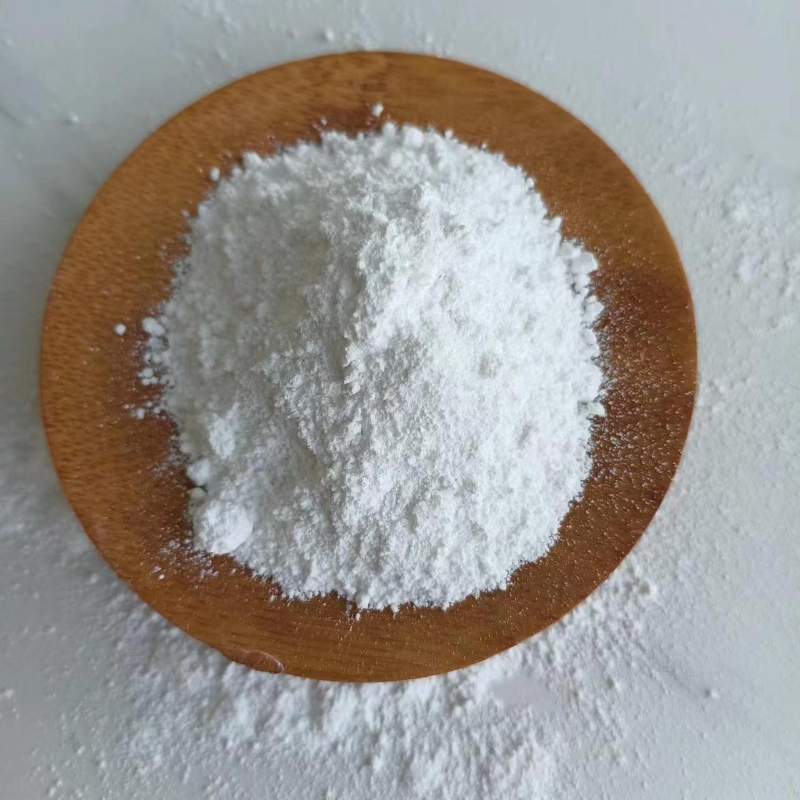-
Categories
-
Pharmaceutical Intermediates
-
Active Pharmaceutical Ingredients
-
Food Additives
- Industrial Coatings
- Agrochemicals
- Dyes and Pigments
- Surfactant
- Flavors and Fragrances
- Chemical Reagents
- Catalyst and Auxiliary
- Natural Products
- Inorganic Chemistry
-
Organic Chemistry
-
Biochemical Engineering
- Analytical Chemistry
- Cosmetic Ingredient
-
Pharmaceutical Intermediates
Promotion
ECHEMI Mall
Wholesale
Weekly Price
Exhibition
News
-
Trade Service
▎WuXi AppTec content team editor
Functional dyspepsia is a common disorder of gut-brain interactions
.
In community surveys, about 80% of people with dyspepsia may have functional dyspepsia
.
Not long ago, the 2022 edition of the British Society of Gastroenterology (BSG) guidelines for the treatment of functional dyspepsia were published in Gut, which discussed the evaluation methods for patients with dyspepsia and summarized the efficacy
of drugs for functional dyspepsia based on a comprehensive search of medical literature.
Based on the GRADE (Assessment, Development and Evaluation of Recommendation Ratings) system, the guidelines give specific recommendations, including the strength of recommendations and the quality of the
evidence.
This article mainly focuses on doctor-patient communication, diagnosis and examination of functional dyspepsia, first-line treatment, second-line treatment, entero-brain behavioral therapy for functional dyspepsia, and management suggestions for severe or refractory functional dyspepsia for readers' reference
.
Screenshot source: References[1]
Doctor-patient communication, diagnosis, and examination of functional dyspepsia
1.
Key points of doctor-patient communication
Clinicians should note that most patients with dyspepsia will present functional dyspepsia as the underlying cause of their symptoms after examination (recommended: strong, low-quality evidence).
Clinicians should clarify when symptoms actually started, as patients tend to remember only when symptoms
worsened.
Patients should be asked about all possible upper GI symptoms, including "red flags" or alarm signs and symptoms
.
Clinicians should ask about epigastric pain or burning, early satiety, postprandial fullness, heartburn, nausea, vomiting, hematemesis, hiccups, reflux, dysphagia, and rumination
.
In the absence of upper GI alarm signs or symptoms, clinicians should diagnose functional dyspepsia in patients with epigastric pain or burning, early satiety, and/or postprandial fullness lasting longer than 8 weeks (recommended: strong, high-quality evidence: very low).
Building an effective, empathetic doctor-patient relationship and shared understanding is key to
functional dyspepsia management.
This may reduce healthcare utilisation and improve quality of life (recommended: strong, quality of evidence: very low).
It is recommended that the patient be explained the diagnosis of functional dyspepsia, its underlying pathophysiology, and the natural history of the disease, including common symptom triggers
.
When presenting patients to functional dyspepsia, it should be noted that it is a gut-brain interaction disorder that is affected by diet, stress, cognition, behavior, and emotional responses to symptoms, as well as post-infection changes (Recommended: strong, quality of evidence: very low).
2.
Choice of different inspection methods
A complete blood count is recommended in patients aged ≥ 55 years with dyspepsia and abdominal serology in all patients with functional dyspepsia with overlapping irritable bowel syndrome (recommended: strong, low-quality evidence).
If no other upper GI alarm signs or symptoms are reported, urgent endoscopy is reserved for patients aged ≥ 55 years with dyspepsia and weight loss, or patients aged > 40 years from a high-risk area for gastric cancer or with a family history of gastroesophageal cancer (recommended: strong; Quality of evidence: very low).
Nonurgent endoscopy is recommended in patients aged ≥ 55 years with refractory dyspepsia, or dyspepsia with elevated platelet count or nausea/vomiting
.
Patients aged ≥ 60 years with abdominal pain and weight loss are advised to consider an urgent abdominal CT scan to rule out pancreatic cancer (recommended: strong; Quality of evidence: very low).
3.
Evaluation of diagnosis and treatment of Helicobacter pylori
In addition to the above, all other patients with dyspepsia are recommended to undergo a non-invasive examination of Helicobacter pylori ("detection and treatment") and, if infected, to be given eradication therapy (recommended: strong; Quality of evidence: high).
The H pylori "detect and treat" strategy is to detect H.
pylori using non-invasive tests (e.
g.
, stool antigen test or urea breath test) and to give eradication therapy
if a positive patient is found.
It is recommended to evaluate successful eradication of Helicobacter pylori after "detection and treatment" only in patients at increased risk of gastric cancer (recommended: strong; Quality of evidence: low).
Empiric acid suppression therapy is recommended for patients without H.
pylori infection (recommended: strong; Quality of evidence: high).
4.
Referral processing
When the diagnosis is in doubt, symptoms are severe, first-line treatment is ineffective, or individual patients require expert opinion, referral of patients with functional dyspepsia to secondary gastroenterology is appropriate (recommendation: weak, quality of evidence: low).
Routine gastric emptying or 24-hour pH monitoring is not recommended in patients with typical symptoms of functional dyspepsia (recommended: strong, very low-quality evidence).
Ideally, patients with functional dyspepsia referred to secondary care are recommended to be managed on a specialist outpatient basis, with access to clinician, diet, and lifestyle support, and effective pharmacologic and entero-brain behavioral therapy
.
The rate of H pylori 'detection and treatment' prior to endoscopy, the rate of H pylori infection, and the use of endoscopy should be assessed (recommended: strong, very low-quality evidence).
First-line treatment for functional dyspepsia
Regular aerobic exercise is recommended for all people with functional dyspepsia (recommended: strong, quality of evidence: very low).
There is insufficient evidence to recommend dietary therapies that include a diet of low to moderate FODMAP (fermentable oligosaccharides, disaccharides, monosaccharides and polyols) for functional dyspepsia (recommended: weak; Quality of evidence: very low).
,(:;:)
。H2
。(:,:)
。(PPIs),,
。(:,:)
。Some prokinetics may be an effective treatment for
functional dyspepsia.
However, efficacy varies by drug class, and many of these drugs are not available
outside of Asia and the United States.
Most of these drugs are well tolerated
(Acotiamide, Itopride, and mosapride: weak, quality of evidence: low)
(Tegaserod recommendation: strong, quality of evidence: moderate).Second-line treatment for functional dyspepsia
- Tricyclic antidepressants (TCAs) as entero-cranial neuromodulators are effective second-line treatments for functional dyspepsia and can be initiated in primary or secondary care, provided that the rationale for their use is carefully explained and patients should be informed about adverse effects
.
It should be started at a low dose (e.
g.
, amitriptyline 10 mg once a day) and slowly increased to a maximum of 30 mg ~ 50 mg once a day (recommended: strong, quality of evidence: moderate).
Antipsychotics, such as sulpiride 100 mg four times daily, or levosulpiride 25 mg three times daily, may be effective as second-line treatment for functional dyspepsia.
The reasons for its use should be carefully explained and patients should be informed of adverse effects (recommended: weak, quality of evidence: low).
There is no evidence that selective serotonin reuptake inhibitors (SSRIs) used as entero-cranial neuromodulators are effective second-line agents for the treatment of symptoms of the functional dyspepsia system (recommended: weak, moderate-quality evidence).
There is no evidence that serotonin norepinephrine reuptake inhibitors (SNRIs) used as entero-cranial neuromodulators are effective second-line agents
for the treatment of symptoms of the functional dyspepsia system.
However, as these drugs are effective in other chronic pain settings, more trials of these drugs are warranted (recommendation: weak, quality of evidence: low).
Tandrespirone 10 mg three times daily may be an effective second-line treatment for functional dyspepsia, but there is no evidence that other serotonin-1A agonists (including buspirone 10 mg three times daily) are effective
.
More trials of these drugs are needed (recommended: weak, quality of evidence: low).
Pregabarin 75 mg once a day may be an effective second-line treatment for functional dyspepsia, but further randomised controlled trials (RCTs) are needed, and given its controlled status, it is recommended that it be used only in specialties (recommended: weak, high-quality evidence: low)
.
Mirtazapine 15 mg once a day may be an effective second-line treatment for early satiety and weight loss in people with functional dyspepsia, but further randomised controlled trials are needed (recommended: weak, quality of evidence: very low).
Entero-brain behavioral therapy for functional dyspepsia
Interpersonal psychodynamic informed psychotherapy may be an effective approach to treating symptoms of the functional dyspepsia system (recommended: weak, quality of evidence: very low).
Cognitive behavioural therapy (CBT) and metacognitive therapy may be effective in treating symptoms of the functional dyspepsia system (recommended: weak, very low-quality evidence).
Stress management methods may be an effective treatment for symptoms of the functional dyspepsia system (recommended: weak, quality of evidence: very low).
Hypnotherapy may be an effective treatment for symptoms of the functional dyspepsia system (recommended: weak, quality of evidence: very low).
Management of severe or refractory functional dyspepsia
For people with severe or refractory functional dyspepsia, a multidisciplinary support team is recommended (recommended: strong, low-quality evidence).
In patients with severe or refractory functional dyspepsia, avoidance of opioids and surgery is recommended to minimize iatrogenic injury (recommended: strong, very low-quality evidence).
Evaluation for eating disorders and eating disorders, including avoidant/restrictive food intake disorder (ARFID), is recommended for people with severe or refractory functional dyspepsia with weight loss and food restriction (recommended: strong, very low-quality evidence).
- Dietitians are advised to manage patients with severe or refractory functional dyspepsia as early as possible to avoid overly restrictive diets (recommended: strong, very low-quality evidence).







